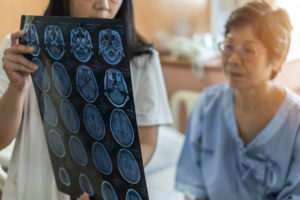
Being able to identify the signs of a stroke quickly can allow you to take action and save your own life or the life of someone you know. The faster you act, the more you can do to reduce the chance of permanent damage a stroke can cause.
The warning signs of a stroke can be relatively apparent if you know what you’re looking for. According to the Centers for Disease Control and Prevention (CDC), the signs of stroke in men and women include:
- Sudden numbness or weakness in the face, arm, or leg, typically on one side of the body.
- Sudden confusion, trouble speaking or comprehending
- Sudden trouble seeing in one or both eyes
- Sudden trouble walking, dizziness, loss of balance, or impaired coordination.
- Sudden severe headache with no known cause.
A stroke is marked by a blood shortage in the brain. Without the blood it needs, there is a severe risk of brain damage, disability, or worse. The best way to limit the damage of a stroke is to act fast. To help with this, you can use the FAST test to check for symptoms.
It includes:
- F-Face: Smile and see if one side of the face droops (or ask the person who you think may be suffering a stroke).
- A-Arms: Can you raise both arms? Is one drifting downwards?
- S-Speech: Try to repeat a simple phrase. Does it sound slurred or strange?
- T-Time: If you identify any of these signs, immediately call 9-1-1.
This information can help you prepare and act quickly if you believe that you, or someone you are with, is suffering a stroke.
Hopefully, you will never experience a stroke. Some ways to reduce the risk include controlling blood pressure, losing weight, increasing activity, treating diabetes, limiting alcohol intake to two drinks per day, and managing diabetes.